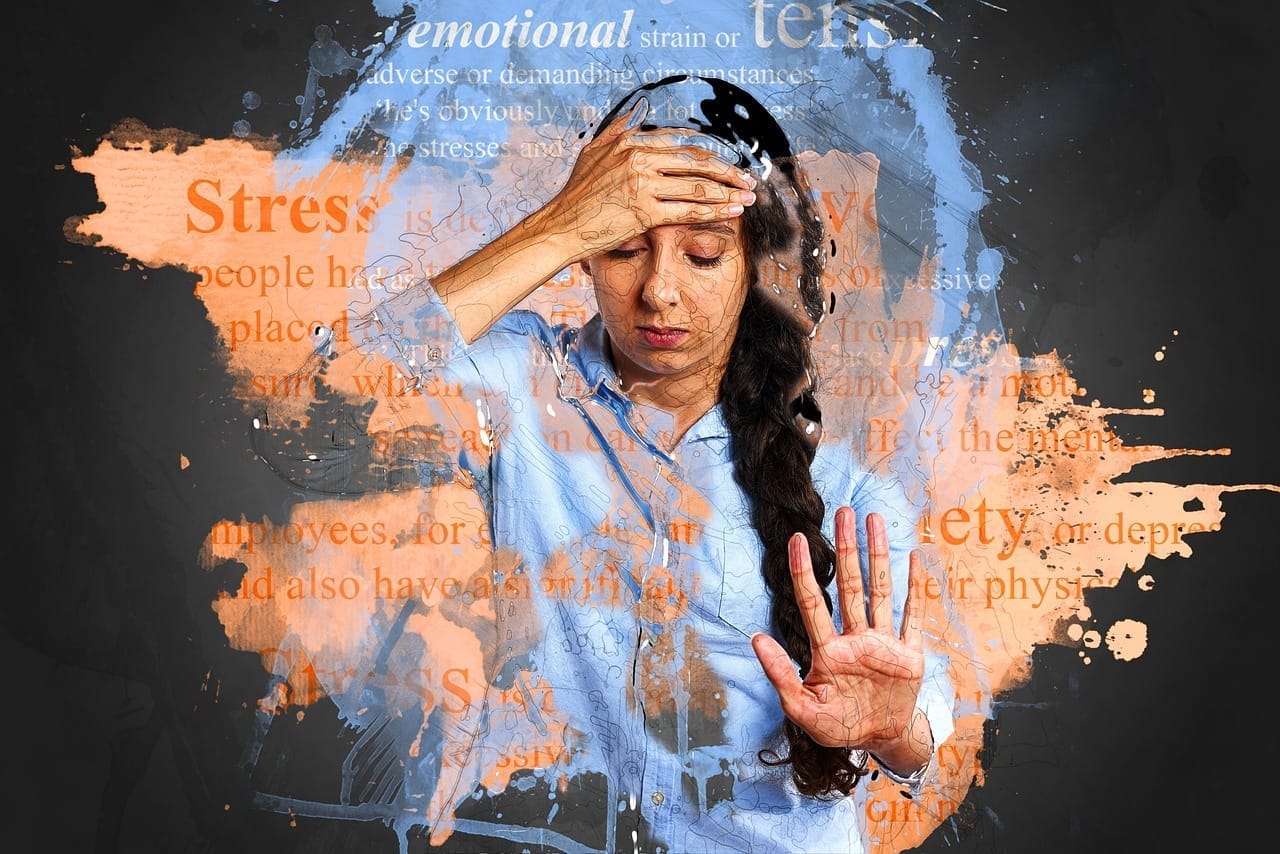Are you in North Carolina and looking for individual therapy or parent counseling?
Visit Flip Consulting and Counseling to schedule a free consultation
Written By Edla Prevette
Why Your Mom's Simple Request for a Sandwich Sends You Into a Rage (And It's Not About the Sandwich)
"Would you make me a sandwich?"
It's such a simple request from your aging mother. But suddenly, your heart is racing, your jaw clenches, and you feel that familiar surge of anger that seems completely disproportionate to the moment. You might even find yourself snapping back in a tone that sounds more like your 10-year-old self than the capable adult you are.
Sound familiar? If you're part of the sandwich generation – caring for aging parents while managing your own responsibilities – and finding yourself having inexplicably strong reactions to seemingly minor interactions, you're not alone. More importantly, you're not losing your mind.
According to Eleanor Brown, licensed professional counselor and trauma specialist, these overwhelming reactions are often rooted in something much deeper than present-day stress. "When we don't do our own healing, things will come up," she explains. "I don't understand why every time my mother says, would you make me a sandwich, I'm going off of the rails."
The answer lies in understanding how unresolved childhood experiences – what trauma specialists call "adverse childhood experiences" or ACEs – continue to impact us decades later, especially during high-stress caregiving situations.
Understanding Your Window of Tolerance: Why Small Things Feel Huge
To understand why caregiving can trigger such intense reactions, we need to talk about something called your "window of tolerance" – the emotional space where you feel calm, grounded, and able to handle life's challenges.
Think of it as your emotional bandwidth. When you're within your window of tolerance, you can respond thoughtfully to situations. But when stress pushes you outside that window, you either shut down (feeling disconnected, depressed, or dissociated) or go into overdrive (feeling anxious, hypervigilant, or explosive).
Here's the crucial part: childhood trauma makes this window smaller.
"When we go through adverse childhood experiences, it causes an overload," Brown explains. "It causes our amygdala to go basically on hyperdrive and it's an overload and it causes a chronic stress in the system. And so we're constantly just doing that. Like we're on edge waiting for the next shoe to drop even when we're not in the dangerous situation. Our body doesn't know we're not in the dangerous situation."
For sandwich generation caregivers, this creates a perfect storm. The stress of caring for multiple generations is already enormous. Add unresolved childhood wounds, and your window of tolerance becomes "like a sliver," as Brown describes from her own experience caring for her mother.

The Many Faces of Childhood Trauma: Beyond the "Big T" Events
When most people hear "trauma," they think of major events – abuse, accidents, disasters. But Brown emphasizes that many of her clients are dealing with what she calls "little t" traumas:
Emotional neglect or constant criticism
Being yelled at frequently, even by well-meaning but overwhelmed parents
Growing up "too soon" – taking care of household responsibilities or sick family members as a child
Being bullied at school with no support at home
Never being allowed to just play and be a kid
Having anxious or overly critical parents
Early separation from parents through daycare or other circumstances
"These aren't even from abusive parents," Brown clarifies. "These are from parents that are just overwhelmed by life."
The common thread? These experiences taught your nervous system to be constantly alert for danger, criticism, or abandonment – patterns that can be triggered decades later when you're caring for the very people who, unknowingly, created those wounds.
Why Family of Origin Dynamics Hit Different
One of the most challenging aspects of caring for aging parents is how quickly we can revert to old family patterns. "When we go back to our family of origin, when we're with our parents, the roles automatically go back to, and this is without trauma, they automatically go back to reverting to what the way that dynamic [was]," Brown explains.
Your parent may forget you've grown up, and part of you may forget it too. Suddenly, you're responding from that younger version of yourself – the one who felt criticized, overlooked, or responsible for everyone else's emotions.
This is why seemingly innocent comments can feel so loaded:
"You need to iron those curtains" (triggers memories of never being good enough)
"Are you sure you should be driving in this weather?" (activates old feelings of being treated like a child)
"Back in my day, we didn't need all these fancy gadgets" (brings up shame about different values or choices)
These triggers aren't about the present moment – they're about unhealed wounds from the past colliding with current stress.
Common Patterns in Trauma Survivors Who Become Caregivers
Brown sees several recurring themes among her clients who are navigating caregiving relationships:
Anxious Attachment Patterns Some people become overly clingy or controlling in relationships, terrified of losing the connection. As a caregiver, this might look like:
Feeling responsible for your parent's every emotion
Inability to set boundaries or say "no"
Constant worry about whether you're doing enough
Avoidant Attachment Patterns Others learned early that emotional connection isn't safe, leading to:
Feeling overwhelmed by your parent's needs for closeness
Difficulty expressing your own needs or feelings
Tendency to withdraw when caregiving gets emotionally intense
Negative Self-Talk and Perfectionism Many trauma survivors develop harsh inner critics that go into overdrive during caregiving:
"I should be able to handle this better"
"Other people make this look so easy"
"If I were a better daughter/son, this wouldn't be so hard"
Brown notes that perfectionism often masks deeper wounds: "That's trying to almost mask all of these, a lot of the negative self talk."

Three Essential Strategies for Healing While Caregiving
1. Do Your Own Healing Work
"The first thing is really, do your own healing, do your own work," Brown emphasizes. This doesn't necessarily mean years of therapy (though that can be helpful). It means beginning to understand your own patterns and triggers.
Practical steps:
Notice when your reactions seem bigger than the situation warrants
Journal about what specific words, tones, or situations trigger strong responses
Consider whether current situations remind you of past experiences
Seek professional support when patterns feel too overwhelming to handle alone
2. Maintain Your Support Network
"When I was taking care of my mother, I didn't have a support network because I withdrew from everyone, and we often do that as caregivers," Brown admits. This isolation makes everything harder.
Practical steps:
Schedule regular check-ins with friends or family members outside the caregiving situation
Join support groups (online or in-person) for sandwich generation caregivers
Don't isolate yourself when caregiving gets overwhelming – that's when you need support most
3. Know Your Triggers and Honor Your Parts
Brown uses a therapeutic approach called "parts work," recognizing that we all have different aspects of ourselves that can get activated in stressful situations.
"A lot of times there may be a five-year-old rolling around inside of me... there's a part of me that reacts like a five-year-old because there was a trauma that happened when I was five," she explains.
Practical steps:
When you feel triggered, pause and ask yourself: "How old do I feel right now?"
If you recognize a younger part of yourself is activated, give yourself what that part needs – maybe comfort, validation, or just acknowledgment
Step away from the caregiving situation until you can respond from your adult self: "The five-year-old cannot take care of my aging mother, but the adult me can"
Breaking the Shame Cycle
One of the most toxic aspects of unresolved trauma is the shame cycle – the relentless inner voice that tells you you're not doing enough, not good enough, or somehow failing.
"I call that the shame cycle – we catch ourselves shaming ourselves over and over and over again," Brown notes.
Caregiving can amplify this shame because:
You're dealing with role reversals that feel unnatural
You're managing complex family dynamics while exhausted
You're trying to be everything to everyone while neglecting yourself
You're facing your own mortality and limitations through your parent's decline
The antidote to shame is compassion – both for yourself and understanding that your reactions make sense given your history and current stress levels.

The Better Framework: Meeting Your Basic Needs
Brown's approach draws from Maslow's hierarchy of needs, emphasizing that when we don't take care of our fundamental needs, everything else becomes harder.
"When I'm hangry, you know, the Snickers commercial, you know, I just get hangry and I don't understand why I'm beating myself up because I'm hangry. I'm not eating well, I'm not sleeping well, you know, we don't exercise. We don't. And when we don't do these things, they affect us on a very fundamental level."
The foundation includes:
Regular, nourishing meals
Adequate sleep
Some form of physical movement
Connection with others
Time for activities that bring you joy or peace
When these basics are missing, your already-small window of tolerance shrinks even further, making every caregiving interaction feel like a crisis.
Recognizing When Professional Help Is Needed
While self-awareness and self-care can help enormously, Brown emphasizes that sometimes professional support is essential. Consider seeking help if:
Your reactions to caregiving situations feel completely out of proportion
You're experiencing symptoms of depression or anxiety that interfere with daily life
You're having thoughts of self-harm or substance use to cope
Family relationships are deteriorating despite your best efforts
You feel completely overwhelmed and don't know where to start
"Every good therapist has a therapist," Brown notes. "I think that people that are going through these kinds of things need to have their support network."
A Different Kind of Self-Care
The self-care often promoted for caregivers – bubble baths and spa days – misses the mark for trauma survivors. True healing requires addressing the root causes of your triggers, not just managing their symptoms.
This means:
Understanding your personal trauma history and how it impacts current relationships
Learning to recognize when past wounds are influencing present reactions
Developing skills to self-regulate when triggered
Building genuine support systems rather than trying to handle everything alone
Practicing self-compassion instead of self-criticism
Creating Space for Healing While Caregiving
The beautiful paradox Brown offers is that caregiving relationships, despite their challenges, can actually become opportunities for healing – if we approach them with awareness and support.
"Sometimes we don't realize. I have one client: 'I don't deal with shame. That's not something I deal with.' And then they took the quiz and they scored like almost the highest you can score," she shares.
This lack of awareness isn't uncommon. Many of us have spent so long pushing through difficult emotions that we don't recognize their impact on our lives.
Moving Forward: Compassionate Care Starts With You
The title of Brown's approach – "Compassionate Care Begins with Healing" – captures the essential truth: you can't pour from an empty cup, and you can't give what you don't have.
This doesn't mean you need to be "healed" before you can care for your parents. It means recognizing that your ability to provide patient, loving care is directly connected to how well you're caring for your own wounds.
When you understand your triggers, honor your needs, and approach your own pain with compassion, you create space for genuine healing – both for yourself and in your relationships with the people you're caring for.
Ready to begin your own healing journey? Recognizing how your past impacts your present caregiving relationships is the first step toward breaking old patterns and creating healthier dynamics. Every sandwich generation caregiver deserves support that addresses not just the practical challenges, but the emotional complexity of caring for multiple generations.
If you're ready to explore how your own history might be affecting your caregiving relationships and learn strategies for managing triggers while caring for aging parents, you don't have to figure it out alone.
Schedule your complimentary caregiving consultation with Edla Prevette today and discover personalized approaches to reduce stress, improve communication, and find the support you need while caring for multiple generations – including yourself.
Learn More About Today's Guest Expert
Eleanor Brown is a licensed professional counselor, author, and speaker specializing in trauma, healing, and whole-person wellness. She draws from her Better Framework to explore how unresolved childhood wounds can impact caregiving, empowering individuals to find emotional freedom that allows them to support both themselves and their aging parents. You can learn more about her work and take her shame assessment quiz at: https://eleanorbrowncounseling.com
Edla Prevette specializes in helping sandwich generation caregivers develop effective communication strategies and reduce stress while caring for aging parents. With thirty years of experience as an educator and therapist, she provides research-based approaches that make caregiving feel more manageable. Learn more at edlaprevette.com.

2024 Edla Prevette | www.edlaprevette.com | Privacy Policy | Terms and Conditions | Affiliate Disclosure
